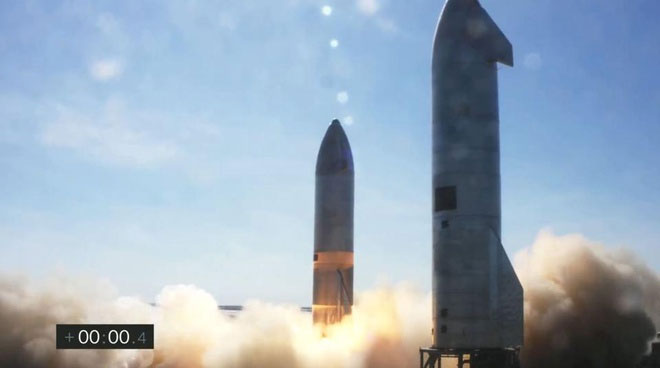The test version of the missile that SpaceX hopes to send humans to Mars exploded on February 2, after a few miles of test flight and an attempt to return to the launch pad.
The Starship SN9, one of the first prototypes of a reusable rocket line that will help send people to Mars, was launched for high-altitude testing by SpaceX on February 2. All three SN9 engines were activated as planned, sending the missile several kilometers in the air.
The engines burn again during preparation for landing, according to the procedure, but the SN9 explodes and turns into a fireball when it reaches the launch pad. It is not known what problem this test missile encountered, according to CNN.

SpaceX engineer John Insprucker commented on the company’s live broadcast that most of the tests “look good”, and engineers have gathered data to help improve the design of the Starship line during flight. , which reaches a height of 10 km.
“We will have to improve the landing part a bit further,” said the engineer.
Earlier last week, the SN9 prototype had to postpone testing despite its launch and availability, after being ordered to stop by the Federal Aviation Administration (FAA) for safety reasons. But this week, Feb. 2, the FAA said SpaceX had “taken corrective action” to comply with safety regulations, but did not specify any issues.
In the live video from February 2, the SN9 rocket exploded when it was launched alongside another missile prototype, the SN10, which had been loaded onto another launcher near SN9. It’s unclear when SpaceX will test the SN10.
In December 2020, the SN8 prototype was also tested, successfully reached a high altitude, performed a desired aerial rotation, and then exploded while trying to land on the launch pad.
The SN8 test left SpaceX and the FAA controversial, as SpaceX previously wanted the FAA to waive some of the maximum risk provisions allowed, and the FAA disagreed. But SpaceX is still testing SN8 according to its plan. It is not clear whether the FAA will investigate the SN8 trial.


